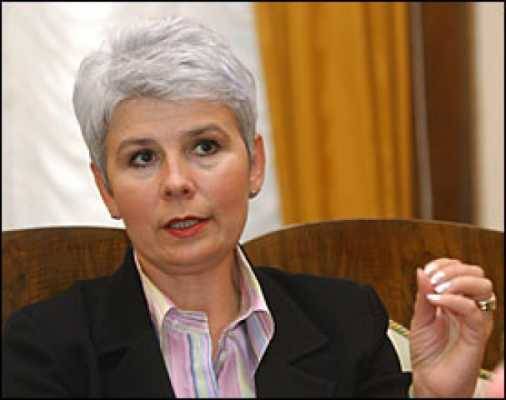Croatian opposition refuses support for Slovenia border agreement
 Zagreb - Croatian Prime Minister Jadranka Kosor on Wednesday failed to get support from the opposition for an agreement that could lead to settling a border dispute with Slovenia, local media said.
Zagreb - Croatian Prime Minister Jadranka Kosor on Wednesday failed to get support from the opposition for an agreement that could lead to settling a border dispute with Slovenia, local media said.
Kosor canceled a cabinet meeting Wednesday night after failing to secure backing for an agreement to send the border dispute to international arbitration. Arbitration was a condition Slovenia had set for unblocking Croatia's membership talks with the EU.
Ratification of the mediation agreement requires a two-thirds majority in parliament, which the coalition, led by Kosor's Croatian Democratic Union (HDZ), does not have, so it needs the backing of the opposition Social Democrats (SDP).
The opposition, however, refused to lend Kosor support.
"I called the cabinet to meet, believing that everybody would support the agreement, but they did not, because of the SDP," Kosor was quoted as saying by Thursday's Jutarnji List daily.
Croatia and Slovenia have contested the border in the northern Adriatic Bay of Piran since the disintegration of former Yugoslavia in 1991. The inside of the Bay is Slovenia's entire coast.
With the northern lip of the bay in Italy and the southern claimed by Croatia, Slovenia was left without access to international waters. The row led to Ljubljana's veto of Croatia's EU membership bid in 2008.
Slovenia lifted its blockade of EU talks with Croatia after the agreement on arbitration was announced on September 11. But Kosor warned that the blockade might be reimposed if Zagreb delays ratification. Another cabinet meeting is set for Friday, Kosor said.
Kosor took over from Ivo Sanader in the middle of his second term in office after his stunning resignation in July. It was speculated that his inability to strike a deal with Slovenia in the border dispute was a key motive for his withdrawal.
SDP leader Zoran Milanovic said the agreement with Slovenia "contains elements that still need to be considered." He did not provide details but said talks with the government are due to continue.
Vecernji List daily speculated that the opposition refused to back the agreement because it would mean "Croatia was giving up a part of its territory." (dpa)